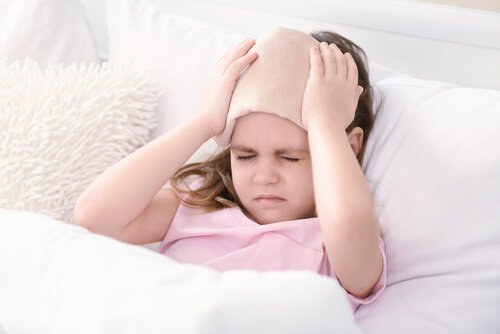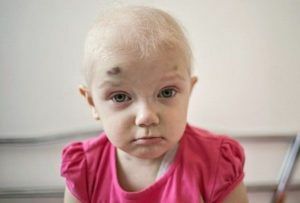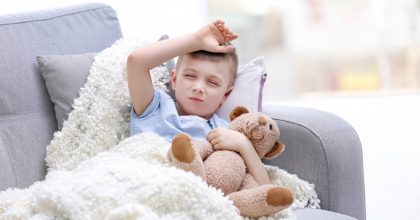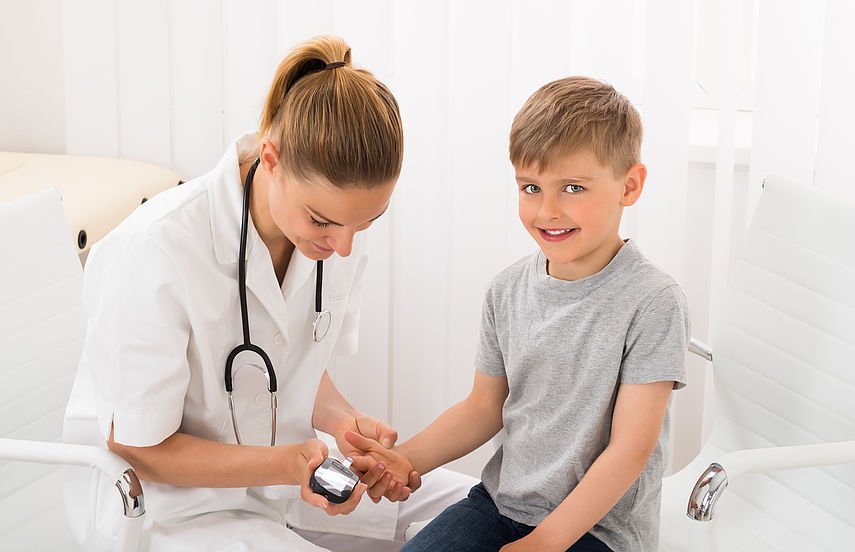Migraines are very strong and painful headaches. You are dealing with a neurological disorder that affects a number of children and adults. Find out here what the symptoms are and how they can be treated.

migraine is a painful condition that affects more children than we think. For this reason, we should be vigilant and aware that migraine can also affect our own children.
Specialists point this out, that the disease is just as common in preschool children as it is in primary school children.
The early detection of symptoms and the fastest possible treatment help to reduce the child’s pain during a migraine attack.
Migraines in children
In most cases, migraines in children consist of very severe headaches. It is a neurological disorder that occurs outside the skull.
The migraine occurs due to swelling in the muscles. These cover the head and neck and affect the surrounding nerves. This sends pain messages to the brain that cause the migraines.
Causes of migraines in children
There are several situations in which children have frequent headaches. However, the course is sometimes only mild.
In other cases, however, the pain is very severe and can last for several hours or even days. Here are some of the most common causes:
- Excessive use of computers, Video games or television
- Exhaustion, fatigue and stress
- Hormonal changes
- Sensitivity to strong smells or noises
- anxietyphases
- Problems with the See
- Flu or infections in the ear, neck or urinary tract
- Frequent inhalation of tobacco
- lack of sleep
- Side effects caused by certain drugs caused
- bad nutrition
"Some children with migraines experience severe pain that can last for hours or even days."
Main symptoms of migraines in children
Recognizing the symptoms will help you treat your child’s migraines appropriately. You can also determine whether you should see a doctor or yours child can take care of at home.
In this way you will help your child get it back as soon as possible better goes. At the same time, early and appropriate treatment also means that your child will suffer less from the headache.
Here are the symptoms:
- Interrupted or pounding pain in the head.
- Moderate or severe pain on one or more >

How to help your child during a migraine attack
The first step in treatment is this, to give your child a pain reliever. This should be recommended by the treating pediatrician. The most common recommendations are ibuprofen or paracetamol.
make sure, that your Child stays in bed or on the sofa. The room should be quiet and dark. Then put a cold, wet towel on your child’s head as this is refreshing.
Massage your child’s scalp and apply light pressure to the temples.
Also try to help him fall asleep. This will help your little patient relax and relieve muscle tension.
When your child is relaxed, this can reduce pain or even make it go away.
Practical suggestions to avoid migraine attacks in children
It is important that you change your child’s habits if they are the cause of common headaches. Some of these habits can be:
-
Pay attention to the time your child spends watching TV, V >

Diet plays an important role in children with migraines
In a lot of Experts have identified cases, that poor nutrition causes headaches in children. A migraine attack can also be triggered by food allergies.
It is therefore important to pay attention to whether a headache occurs after your child has eaten certain foods. It is recommended to avoid the following foods:
- lactose
- canned goods
- Sweets
- industrial baked goods
- overripe bananas
- chocolates
- aged cheeses
It is important that you change your little one’s habits, which could be the trigger for frequent headaches.
At the same time, you should include plenty of fruit, vegetables, and whole grain bread in your child’s diet. Also choose foods that are high in magnesium to keep your child healthy.
If your child has migraines, try not to worry too much. It already helps if you take good care of the little patient. In general, migraines in children decrease with the onset of puberty.
RELATED ITEMS
-

Leukemia: symptoms in children and treatment of the disease
Symptoms of Childhood Leukemia Common Signs of Childhood Leukemia Which Tests Are Performed on Childhood Leukemia? How is leukemia…
-

Migraines in children – symptoms, causes – therapy, kanyo®
Before puberty, four to five percent of children are affected by migraines 1, and around one in ten adolescents have migraines during puberty. 2 While the…
-

Diabetes in children »causes, symptoms & treatment
The vast majority (95%) of diabetic children develop congenital type 1 diabetes, the acquired form, type 2 diabetes, occurs…
-

Hard stool in children – causes, treatment & prevention
Hard bowel movements in children is a symptom that usually occurs in connection with constipation. Constipation is one…
